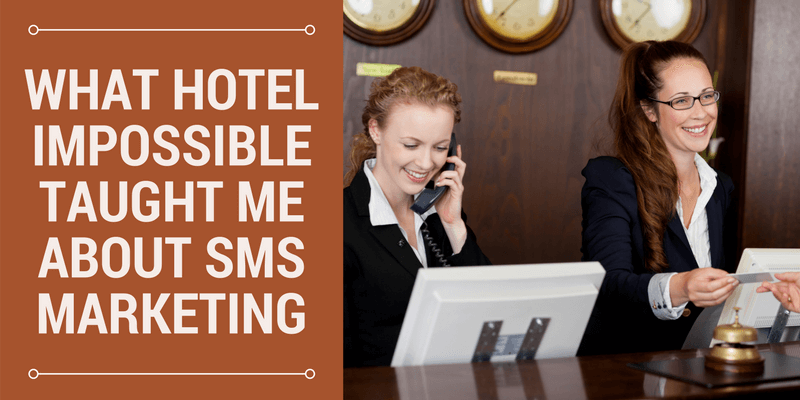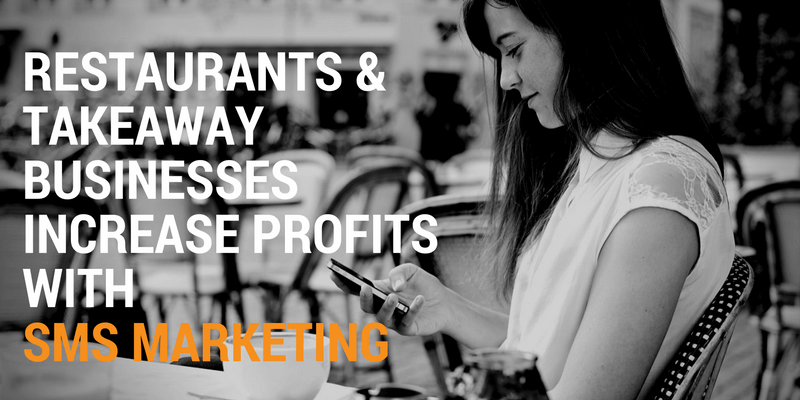Building an SMS Inbound Marketing Campaign for Your Hotel Business

SMS flies under many marketers radars when it comes to building an inbound marketing strategy. But if Buzzfeed’s news app is to be believed, there are days when SMS generates the greatest percentage of shares on that channel, beating out Twitter, Facebook, WhatsApp and email. SMS share buttons are reported to have been used 4 times more than Twitter buttons. When you consider Twitter has 317 million active users, then SMS marketing has huge potential.
Best of all, taking advantage of SMS is as simple as using our powerful SMS API solution to integrate SMS services across all your applications.
Tracking is Essential
If you’re thinking of experimenting with SMS, then tracking is essential. Make sure you tag the links your SMS buttons share so any referrals can be properly attributed and users segmented.
That way you can begin to drive sales by targeting your inbound campaigns. We’ve blogged about the basics of inbound marketing before and you can read our thoughts here.
But what if you don’t have a high profile social presence and can’t afford a marketing consultant? Let’s say you’re a small, local hotel that generally relies on repeat custom and the odd review on TripAdvisor? How do you leverage the power of SMS to construct an inbound marketing strategy that works for you? We’ll show you how, but first you need to know the difference between inbound and outbound marketing.
So, What is Inbound Marketing?
Outbound campaigns can be costly and aggressive, bombarding customers with unwanted email, flyers and cold calls. In contrast, inbound campaigns rely on direct and personal communication through social media and SMS messaging to supply your audience with timely, relevant and interesting content that converts them from viewers to customers.
Think of yourself as a fisherman, retaining loyal customers with your SMS bait and potentially attracting new ones. In the hotel business, repeat bookings will be crucial to your business, and SMS inbound marketing is a smart way to reward your customers’ loyalty.
Building Your List
Most people have a tablet, and building a contact capture form is straightforward – just make sure you include an opt-in to SMS that will keep you ICO compliant. When your guests register, simply ask them to fill out the form and incentivise them to opt-in to SMS by giving them a discount on their next booking.
Quickly and simply, you’ll build your SMS database through your lead capture form. Now you’re ready to develop your SMS-based inbound marketing strategy.
Integrate and Schedule
Next, you need to integrate all the data you’ve captured with your form. Now that’s done, you’ll need to think of some messages you want to send and think about when to schedule them for – remember, no one likes being woken up in the middle of the night by a beeping mobile.
For a small, family-run hotel it would be appropriate to send your guests information such as:
- A welcome message when they arrive and a parting message looking forward to their next visit
- Off-season discounts
- Promo codes for loyal customers
- Christmas and birthday greetings
- Targeted campaigns – SMS works particularly well when it’s personalised
- Pro-active messaging related to check-in and check-out, room service and local travel information
Although only 17% of consumers say they find SMS contact intrusive, you’ll still need to handle your content and timing with sensitivity, and scheduling can help with that. SMS messages are often more effective when your customers are out and about rather than at home. Timing is everything with inbound marketing and SMS, so try and anticipate when customers might be thinking of booking a weekend away or a family holiday.
Advertise Your Shortcode Keyword
Your shortcode keyword is the gateway to growing your contact list further. As a hotel business, you won’t want to do away with printed publicity like brochures and business cards, but they’re a prime opportunity to include a call to action that includes your shortcode. Keep it simple: you only need to include a line like ‘Text HOTEL to 87007 for discounts and more’.
For your inbound marketing strategy, you’ll need to promote that message consistently across social media platforms like Twitter and Facebook. Though you may not be a prolific social media user, it is a key tool for inbound marketing and you’ll find some useful tips on how SMS and social media can work together here.
Why SMS Based Inbound Marketing Can Work For You
Not only is it cheaper than social media, SMS is a far more personal medium which users appreciate. It’s easy for generalised social media posts to get lost in the digital noise, but SMS messaging is a very direct form of communication.
Because your customers have opted in to receive your messages, you’ve already established a level of trust. Send them discounts or offers on repeat bookings, or relevant travel information, and you’ll increase that trust level further. And by speaking directly to your customers, you’ll encourage them to book again in a way that a message generated over a social network feed may not. Offer information with a clear call to action that will be useful to your customer right now to ensure they act on your suggestions.
Check out what your competitors are doing. The chances are they’ve overlooked SMS marketing in favour of a social media focused inbound marketing campaign or are still relying on outbound marketing techniques alone. Therefore, the advantages of SMS can give you a real edge in your local business community.
You don’t need a huge budget to make SMS inbound marketing work for you, just some imagination and common sense:
- DO provide an opt out like ‘text STOP to 87007’
- DO show some courtesy by scheduling your SMS in a timely manner and at an appropriate frequency
- DO use simple, formal language that your customers are familiar with and try to avoid text speak
- DO use a cross-platform approach that integrates SMS with a social presence and print publicity to offer repeat customers immediate value.
If you’d like to know more, check out our blog and our SMS solutions to start designing an SMS inbound marketing strategy for your hotel business.
Related Articles
6 SMS Marketing Ideas for Your Restaurant
SMS Marketing: Four Sectors Successfully Using Text Messaging
SMS marketing has seen a huge uplift in popularity in recent years, with big brands investing in the technology to better engage with their customers. There are so many benefits of SMS marketing, from the ability to directly to reach customers with your communications, to the fact that over 80% of SMS texts are read. With over approximately 90% of the world receiving mobile coverage, you’re highly likely to be able to reach your audience, regardless of where they are. SMS marketing is cost effective, and campaigns are quick to develop, in as short a time period as the time it takes to write a text message. This gives you the advantage of being able to communicate quickly, and effectively with customers, reacting to information almost instantaneously. With so many reasons to use SMS marketing, we’ve highlighted four sectors successfully using SMS messaging as case studies to highlight the advantages of investing in the technology.
Travel Agents Should use SMS Messaging During the Off Season
Now that the peak travel season is over, how can travel agents stay top of mind in their customers? If you look around, you’ll notice everyone seems to have a mobile. That means SMS is the perfect way to reach them and make sure you’re not forgotten.
Hotels Use Text Messaging to Help Improve Customer Experiences
Hotels constantly strive to improve customer experiences, but sometimes things go awry. Many problems could be fixed if the customer complains while at the hotel rather than later when they return home. By having a 'textline' you can give guests the opportunity to share their views directly with management without a direct confrontation.
How to Turn SMS Messages Into Better Reviews for Your Hotel
Hotel guests use review site ratings like TripAdvisor to make decisions about where they’ll stay. If your hotel doesn’t rate well, you’re in trouble. Find out how you can get more positive reviews when you use SMS messaging to communicate with guests.
What Hotel Impossible Taught Me about SMS Marketing
In Hotel Impossible, Anthony Melchiorri saves struggling hotels. It turns out some of the advice he gives them could make you a lot more money. It’s all about marketing and knowing where to get the best ROI. Read the blog to see if you’re spending in the right places.
Restaurants And Takeaway Businesses Increase Profits With SMS Marketing
Your customers are likely thinking about food at certain times of the day, and at those times their phone is almost certainly within arms reach. Using SMS marketing you can time your messages perfectly because you know that the time you send them is the time they get read, usually within 2 minutes.
Don’t Believe The Myth of The “Cashless Shopper”
Sometimes bloggers or journalists get a bit carried away. They see some data or fact, and run off to declare there’s a trend you need to know about. The latest one I’ve seen is all about how to reach the generation of “cashless shoppers”. The argument goes that you need to use SMS messaging to reach customers because they are all shopping online – where you obviously can’t pay in cash.
SMS Messaging for Cafes and Restaurants
With more and more people than ever before eating out and sampling food from around the world in eateries up and down the country, the restaurant sector is booming. But if you're operating a small business in the hospitality sector, you need to make sure that you keep your premises as full and thriving as possible in order to pay your bills and keep the enterprise sustainable. That's where SMS messaging comes in. In this blog post, we will look at ways you can use SMS messaging to make your business processes more efficient, boost your customer numbers and become the most popular place in town.
5 Ways the Travel Industry can Make Use of SMS Marketing
In order to appeal to new customers and interact with existing ones, businesses are always looking for new marketing methods. Whilst many companies are using traditional and online marketing techniques, these aren’t always effective. Email filtering, for example, means that many recipients may not even be aware that they’ve received contact from your company. As many email hosts provide in-built spam filters, it’s easy for email marketing content to be overlooked or ignored completely. SMS marketing, however, overcomes many of the obstacles associated with online and email marketing. Whilst potential customers may not see your company emails, SMS messages aren’t filtered in the same way. The delivery rate is, therefore, far higher for SMS messages in comparison to marketing emails.












